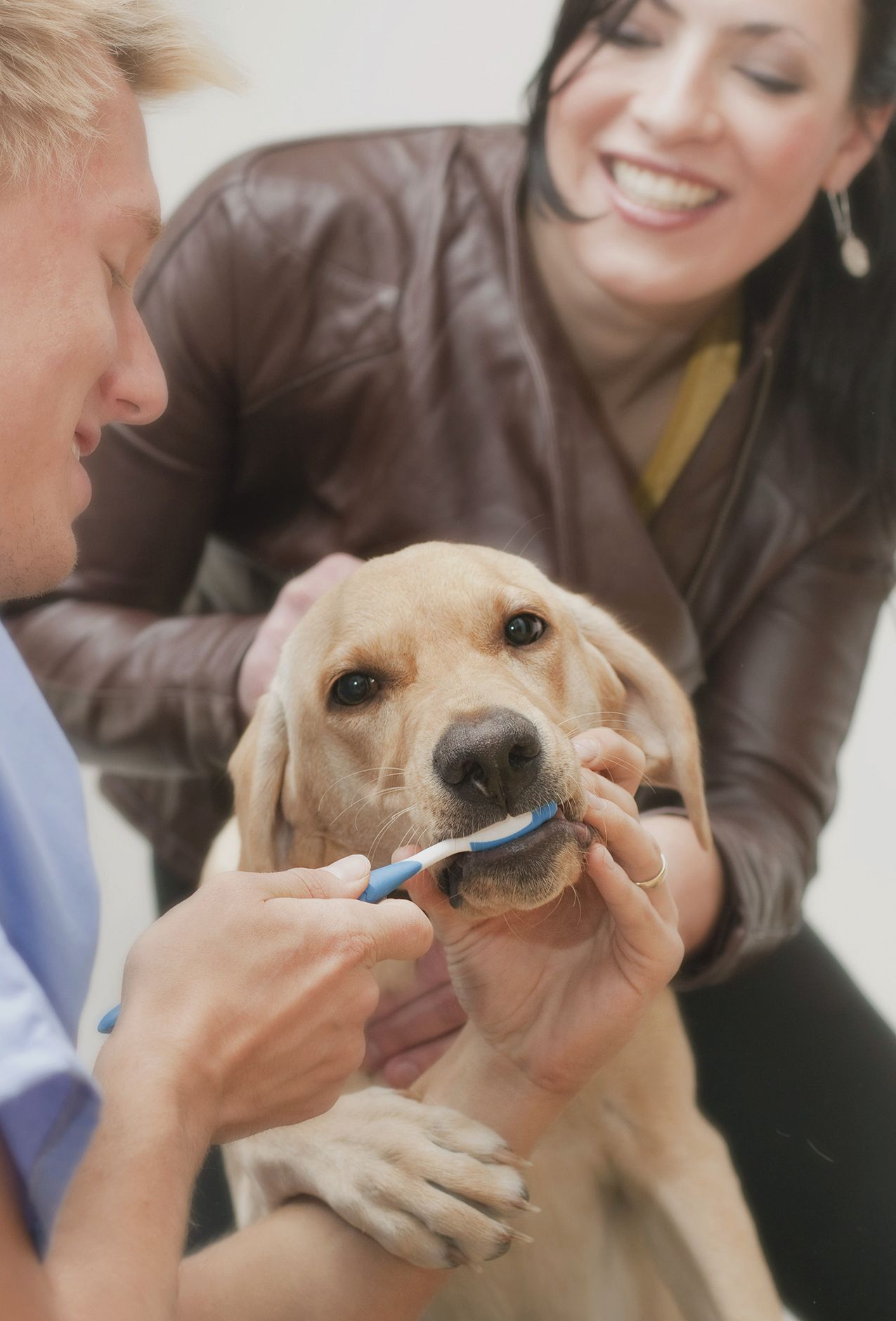Brush Up on Pet Dental Health
Courtesy of the Niagara Frontier Veterinary Society
Companionship, unconditional love, and security are just a few pet-owner perks. People who bring pets into their homes understand that a certain commitment comes with becoming a pet parent. Pet owners recognize they need to provide food, shelter, and basic health care for their pets, but they may not realize the role dental health plays in helping pets be as healthy as possible.
Veterinarians report that without regular dental care, about 80 percent of smaller dogs and 70 percent of cats over the age of three suffer from significant oral disease that requires treatment. If dental disease is left untreated, pets may suffer from inflammation, infection, and even chronic pain. Bacteria from poor dental health may spread to other organs and cause kidney and heart disease, along with liver failure. Recognizing the signs of pet dental disease, and taking steps to alleviate it, can keep pets healthy.
Don’t turn away from bad breath. Bad breath isn’t something that comes with having a pet. Odor from a dog’s or cat’s mouth may indicate a problem such as stomatitis, a common feline condition that causes inflammation of the oral tissues and gums.
Start brushing pet’s teeth. Brushing a pet’s teeth promotes good oral health and potentially prevents serious problems along the way. Always use a pet-safe toothpaste, and talk to a veterinarian about any concerns that you have. Never use human toothpaste – it can be toxic to your pet.
Invest in other dental products. Seek products with Veterinary Oral Health Council approval to help maintain a pet’s oral hygiene. Avoid products like synthetic bones, antlers, and other animal bones, which can fracture an animal’s teeth or cause intestinal problems.
Work with your veterinarian. Vets typically use X-rays to diagnose dental disease, as teeth may appear normal to the naked eye, but still be diseased. Anesthesia is frequently used in dental evaluations and cleanings. It makes it safer and less stressful for the animal and the vet. Ask your vet about the frequency of dental cleanings and care, including questions about anesthesia use.
Pet owners must prioritize their furry friends’ oral health. Though often overlooked, pets’ dental health is integral to their overall health.
The Niagara Frontier Veterinary Society consists of 75 small animal hospitals and 200 practitioners in Erie and Niagara counties. Learn more at www.NFVeterinarySociety.org.











